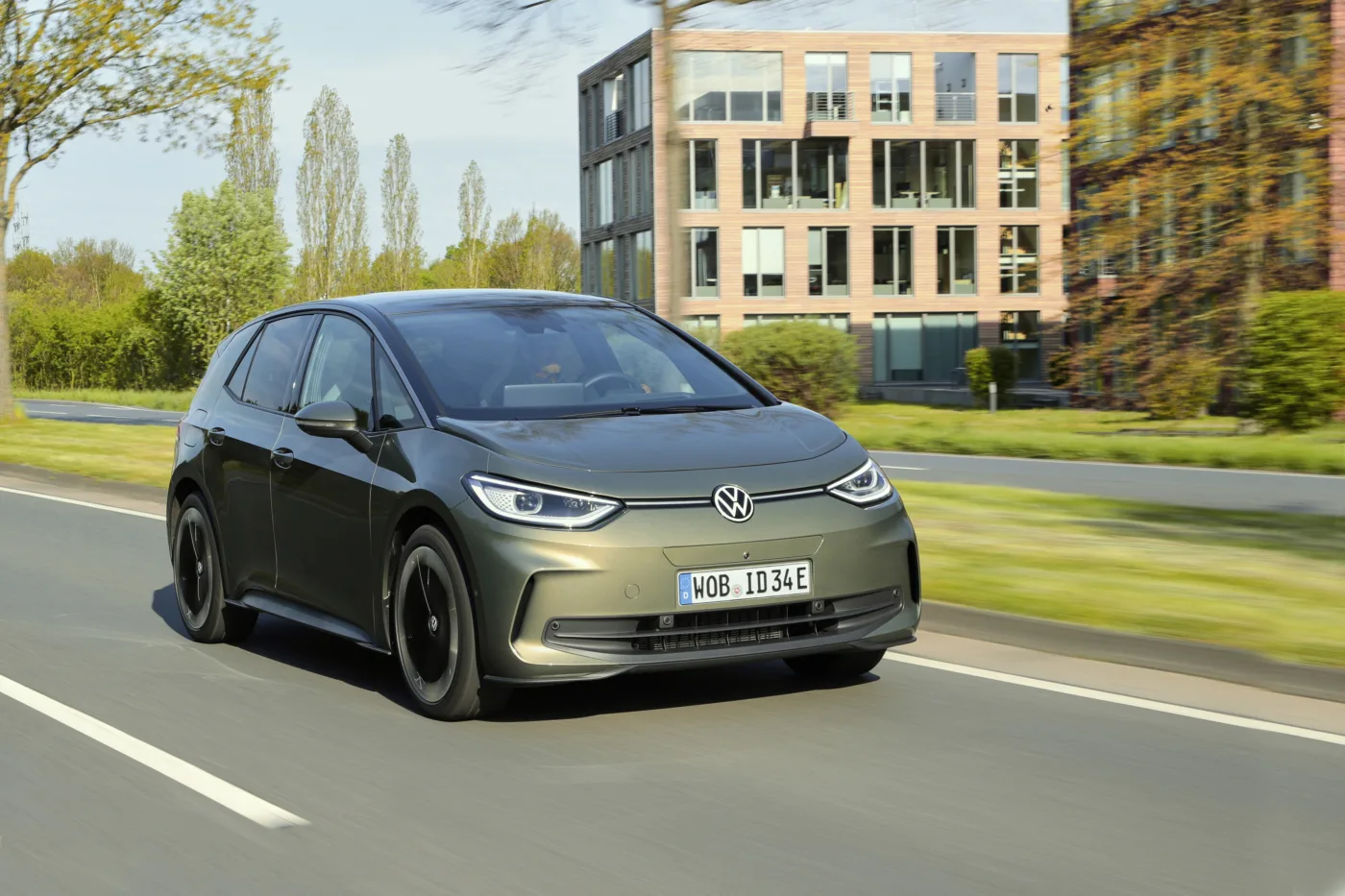Volkswagen has equipped the ID.3 in the UK with something new: pay-for-power. You get 150 kW (201 hp) as standard, but for the full dose of 170 kW (228 hp) you have to… sign up for a subscription. Welcome to the automotive world where horses are unlocked like Netflix episodes. So Volkswagen has started charging a subscription fee for additional horsepower!
Volkswagen has started charging a subscription fee for additional horsepower! The official British Volkswagen configurator says in black and white: for new orders for ID.3 is power 150 kW standard, 170 kW you get it if activate an optional power boost for a fee. It is available one-month free trial period, then monthly, annual or lifetime activation via In-Car Shop respectively Volkswagen Connect Shop; subscriptions automatically renew unless you cancel them.
How much does Netflix car cost and what do you get?
VW in United Kingdom charge £16.50/month, £165/year or £649 one-off ("lifetime"). With the upgrade, the power jumps from 201 hp (150 kW) on 228 hp (170 kW), and the torque with 265 Nm (195 lb-ft) on 310 Nm (228 lb-ft). The range is expected to remain unchanged. Auto Express adds that the lifetime upgrade is tied to vehicle (so it remains upon resale), which is at least a logical drop of reason in a sea of subscription trivia.
Where is the catch?
You also look at the same thing as factory set 80 %, pay for 100 %Even better: VW admits in the fine print that it is a digital power boost, which you can turn on/off like a light in the app – which is a magical money-making machine for the manufacturer, and for the buyer, the feeling that the car is never really possesses, but only licenses.
Numbers that hurt and cheer at the same time
- Power: 150 kW (201 hp) → 170 kW (228 hp) after activation.
- Torque: 265 → 310 Nm (195 → 228 lb-ft).
- Acceleration (0–100 km/h / 0–62 mph): with 170 kW 7.1 seconds (officially for Pro S after the latest upgrade).
- Final speed: 160 km/h (99 mph) at Pro/Pro S. (EV Database)
- Batteries (UK 2025): 52 kWh, 59 kWh and 79 kWh (net), depending on version; claimed 0–62 mph range 5.7–8.2 seconds (GTX included).
- Charging (model year 2024/25): to 145 kW (Pure), 165 kW (Pro) and 175 kW (Pro S) DC.
Emphasis: ID.3 Pro S with 170 kW it is not equally “generous” everywhere. In Germany 170 kW is standard on the Pro S, but in some other countries it is optional. power-on-demandVW apparently tested it too British subscription model.
These are not the first "payable horses" - industrial context
The memory has not yet faded: BMW tried to sell heated seats as 18 $/month (They later dropped this because customers got angry – and rightly so). Mercedes-Benz but at EQ models offered Acceleration Increase for 1,200 $/year, which shortens 0-60 mph and increases power/peak torque – pure software injection. So VW is not alone, but it is the first to in the UK locked horses in ID.3 for a steady stream of income.
Ownership vs. License: A Thin and Slippery Line
The digital car is a package hardware + proprietary software. DMCA 1201 in the US prohibits the circumvention of protection mechanisms and the distribution of circumvention tools, even if the owner buy hardwareIn practice, there are three-year exemptions (e.g. for repairs), but they are narrowly defined and periodically revised – meaning things can quickly get complicated for anyone who wants to “unlock” features without the manufacturer’s blessing. (U.S. Copyright Office)
So it's no surprise that manufacturers are aggressive even outside paywalls: Mazda sent in 2023 cease-and-desist to the developer who made the open source integration for Home Assistant – result? Integration had to go down. The law is on the side of copyright holders, not necessarily users, even if it is about functional interoperability. (Home Assistant, Ars Technica)
And even more broadly: the battle for the right to repair It also flared up around cars. In Massachusetts This year, the court finally rejected the industry's challenge and upheld a law that opens up telematics to independent workshops - changing the balance of power and suggesting that the dialogue on digital ownership still hot. (WBUR, Reuters)
Why is VW doing this and who benefits from it?
Because it is subscription dream dairy cow: low cost, high ARPU, transferable to another owner and without the logistics of additional engines. Auto Express says that the ID.3 is in UK on the configurator registered with 228 hp, although without the upgrade you only get 201 hp – this raises interesting questions about insurance premiums and transparency. The Drive adds that the option (except for GTX) extends across the entire range. (Auto Express, The Drive)
Conclusion:
Volkswagen ID.3 is a perfectly calibrated electric hatch, which with a new software platform, better infotainment and faster charging finally works like a car from 2025, not 2019. Positive? Flexibility. If the car lease for 3 years, you can try out "full power" for a small fee during a summer road trip and then cancel. Negative? The feeling that you nickel-and-smoke function that is in physically already installed in the carAnd when there is still among us DMCA and borders the right to repair, it is clear that the next decade will see more motoring SaaS like Protrusion.






